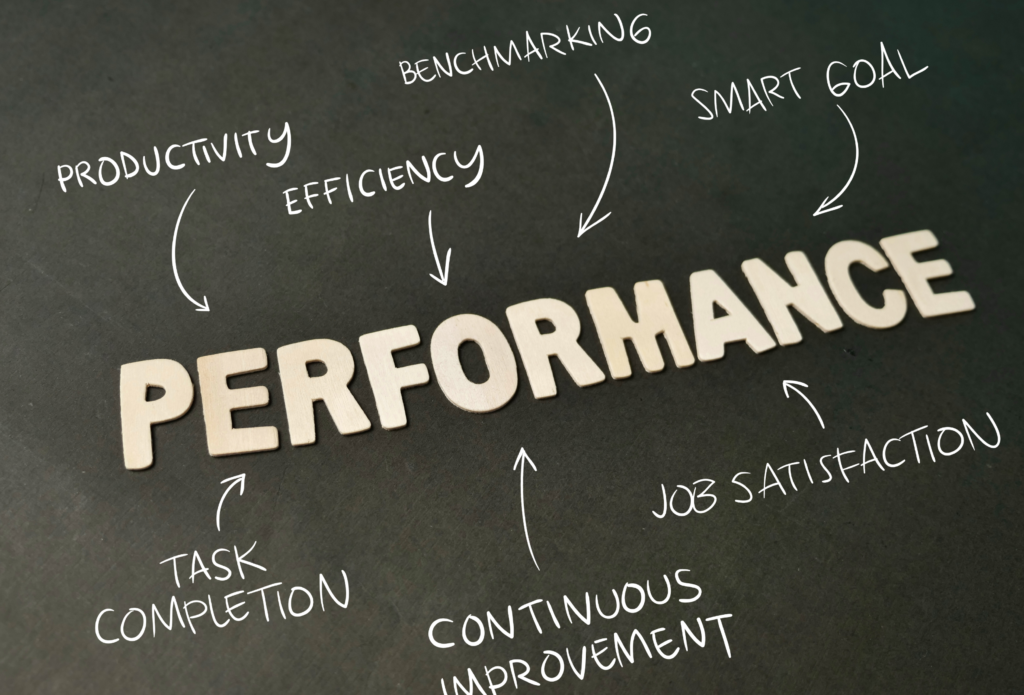A performance appraisal, also known as a performance review or performance evaluation, is a formal assessment conducted by a line manager to evaluate an employee’s performance.
This systematic and periodic meeting assesses the employee’s performance using specific pre-established criteria to determine their overall contribution to achieving organisational objectives.
Traditionally conducted annually, performance appraisals are increasingly being performed more frequently—weekly, monthly, or quarterly—for greater effectiveness.
What is the Importance of Performance Appraisals in the Workplace?
Performance appraisals serve several key purposes:
- They provide an opportunity to acknowledge employees’ achievements.
- Appraisals facilitate improved performance by identifying areas for development.
- They establish a clear understanding of job responsibilities and priorities.
- Employees are able to identify their strengths and areas for improvement.
- Employees learn to become more proficient and productive.
- Managers and employees can plan for the training and development needs of their departments.
- Appraisals are an opportunity to discuss the employee’s career aspirations.
What Performance Appraisal Methods Must Businesses Adopt in the Workplace?
Below are the performance appraisal methods to adopt.
- Shorter-Cycle Performance Review: Shorter-cycle appraisals, conducted weekly, biweekly, monthly, or quarterly, offer better evaluation and timely feedback, keeping employees continuously informed and engaged.
- Self-Appraisal Method: Employees highlight their achievements and note their weaknesses, fostering a more open and self-aware appraisal process. This method aims to align the employee and managers views on performance.
- 360-Degree Appraisals: This 360 appraisal system involves feedback from the employee’s manager, peers, direct reports, and sometimes customers, providing a comprehensive view of performance. It is widely adopted by leading companies for its objectivity.
- Management by Objectives (MBO): In MBO, managers and employees set SMART objectives (Specific, Measurable, Attractive, Realistic, Time-based) together. The employee’s performance is then evaluated against these goals.

How to Conduct a Performance Appraisal Meeting in the Workplace
Here are the actions to take, when performing an appraisal meeting.
- Before the Meeting: Managers must review the employee’s performance to identify met goals and challenges. This performance must be evaluated using SWOT analysis and provide the employee with the meeting agenda.
- During the Meeting: Managers must communicate clearly and positively. Present practical ideas for improvement, encourage the employee to express their opinions and suggestions and discuss career development and job description if necessary.
- After the Meeting: Review identified issues and possible improvements with the employee. Praise positive contributions. Offer support and assistance. Thank the employee for their time.
Asides from the above mentioned guidelines, HR managers or executives must be well-prepared by reviewing company goals and previous appraisals. Establish and communicate performance standards, and create a clear plan and discuss challenges and successes.
Importantly, they must measure performance against company goals and standards, compare current and previous performances constructively, and agree on action steps and summarise the meeting. As an add-on, managers must discuss salary, promotion opportunities, career development, and office relationships.
What are the Common Performance Appraisals Mistakes Every Manager Must Avoid?
Performance appraisals are an excellent remedy to a lot of challenges affecting a business when done correctly. Here are five mistakes made during performance appraisal and some suggestions on how your organisation can avoid them:
- Infrequent performance appraisals: Performance reviews provide feedback on how well employees contribute to business goals. However, many organisations limit them to once a year due to the time involved. This infrequency often leads to employees being judged primarily on recent actions, overlooking earlier successes or mistakes.Infrequent reviews also mean employees receive limited feedback, allowing errors or misconceptions to persist, and wasting resources. Regular appraisals and frequent check-ins ensure continuous feedback, fostering ongoing improvement that benefits employees and the organisation.
- Unobjective performance reviews: A face-to-face interview can be affected by the HR manager’s approach. Being overly kind without giving constructive criticism for improvement is definitely a miss or being overly hard without empathy can also be detrimental. During the performance appraisal interview, it is important for HR managers to have an open mind while addressing the employee.
- Concluding appraisals without feedback for improvement: Constructive feedback is the cornerstone of a sound appraisal system. While HR managers should provide unbiased feedback about employees’ strengths and weaknesses, they should also give feedback on how the employee can do better, or even suggest helpful measures.
- Having one-sided conversations: Performance appraisals usually involve some form of face-to-face interactions with employees. However, some HR managers speak a lot during the interview and do not participate in active listening. Remember that communication is not complete until feedback is received. It is necessary to balance listening and talking, so the employee feels relaxed enough to interact effectively and share more context during the review.
- No post-appraisal action plan: The challenge here is this – what happens after performance appraisals? Some HR managers fall victim to not planning for what should happen post appraisal season. After appraisals are concluded, HR and line managers need to make recommendations to management based on company-wide trends and individual performance. Post-appraisal recommendations may include training, restructuring of tasks, taking certified exams, and promotions.

What are the Key Performance Metrics to Track in the Workplace?
Measuring employee performance also helps the employee understand what the organisation’s expectations are regarding their work so that they can aim in the right direction.
Here are some critical performance metrics your business should be tracking and measuring:
- Goal-Based Metrics:These metrics evaluate employee productivity by tracking indicators such as goals initiated, completion rates, and unmet targets. Goal-based metrics align individual contributions with team and organisational objectives, ensuring each employee plays a role in achieving company goals. They also provide valuable insights into the employee’s effectiveness in their role.
- Quality of Work: Employees who consistently deliver subpar work can impact team dynamics and client satisfaction, directly or indirectly. The quality of an employee’s work influences customer retention and the standard of products or services offered. Thus, assessing work quality during performance appraisals is crucial. A comprehensive approach, such as 360-degree feedback, provides valuable insights into this metric.
- Engagement Metrics:Performance appraisals should regularly assess employee engagement across teams. Frequent reviews enable management to address engagement drivers, sustain motivation, and reduce turnover. Engagement can also be measured through surveys covering key factors like compensation, work-life balance, alignment, well-being, and work culture.
- Diversity, Equity, and Inclusion (DEI) Metrics: Diversity, equity, and inclusion metrics require appraisers and company leaders to take a holistic look at the company, viewing performance scores by gender, age, location, and other demographics. Measuring DEI metrics helps a company take note of possible unaddressed biases and cultivate a more inclusive workplace.
- Training and Development: This metric measures the effectiveness of employee growth initiatives and their impact on organisational success. It helps assess how well employees apply new skills, adapt to evolving roles, and contribute to improved performance. Tracking this metric ensures training investments align with business goals and drive productivity, engagement, and retention.
Conclusion
Employee performance appraisal is about reviewing the past and present with a focus on the future. A poorly done performance appraisal can be counterproductive and demoralise employees.
We have learned that an annual performance appraisal is insufficient. Still, the requirements of a more regular review can be daunting to the already busy manager. That’s why you need a performance management software that comes with OKR and Balanced Scorecard frameworks and lets you manage performance at the departmental and organisational levels.






